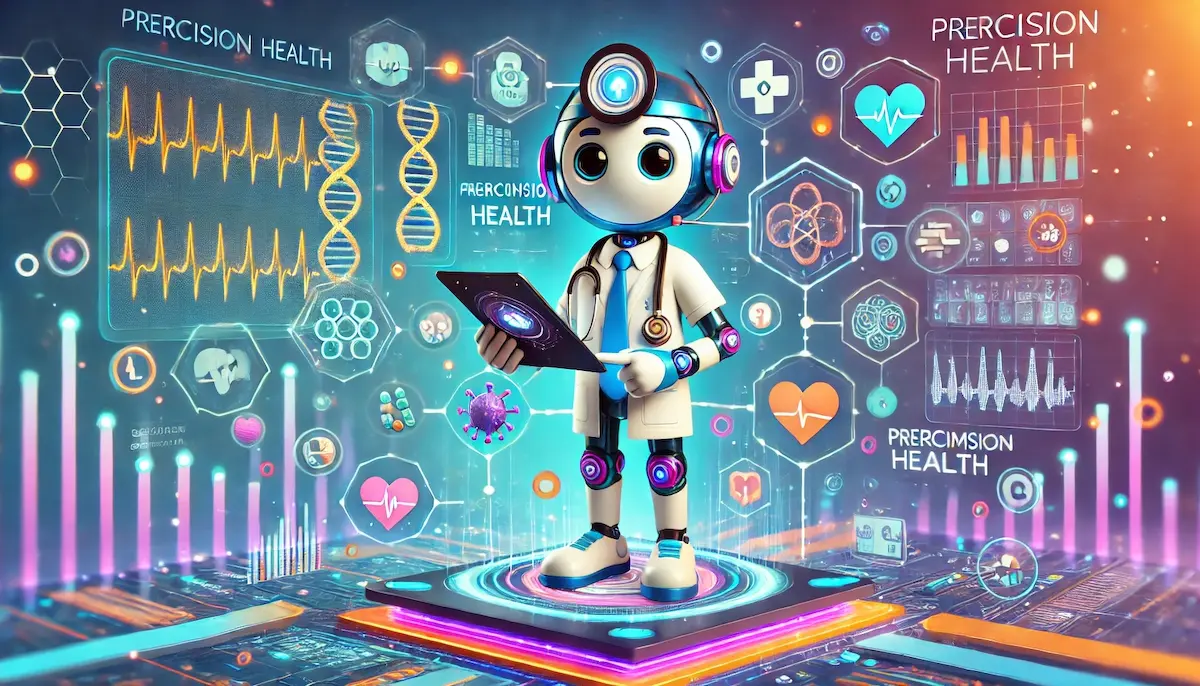Precision health is an innovative approach to healthcare that aims to tailor medical treatment and prevention strategies to individual patients based on their unique characteristics. By integrating data from genetics, lifestyle, environment, and other factors, precision health seeks to provide more accurate, effective, and personalized care. This article explores what precision health is, its key components, applications, benefits, and future trends.
What is Precision Health?
Precision health, often synonymous with precision medicine, is a personalized approach to healthcare that uses detailed information about a patient’s genetic makeup, lifestyle, environment, and health history to guide decisions about prevention, diagnosis, and treatment. Unlike traditional one-size-fits-all medicine, precision health recognizes that each patient is unique and requires tailored care to achieve the best outcomes.
Key Components of Precision Health
Precision health involves several key components that work together to provide personalized care:
1. Genomics
Genomics is the study of an individual’s genetic material, including their DNA and RNA. Understanding a patient’s genetic profile can help identify predispositions to certain diseases, predict responses to treatments, and guide personalized therapy.
2. Biomarkers
Biomarkers are biological indicators that can be measured to assess health or disease states. These include proteins, genes, and other molecules that provide information about a patient’s condition and response to treatment.
3. Data Analytics
Advanced data analytics and machine learning algorithms are used to analyze large datasets from various sources, such as electronic health records (EHRs), wearable devices, and genomics. These tools help identify patterns and make predictions about health outcomes.
4. Personalized Treatment Plans
Based on the insights gained from genetic, environmental, and lifestyle data, healthcare providers can develop personalized treatment plans that are specifically tailored to the needs and characteristics of each patient.
5. Preventive Care
Precision health emphasizes preventive care by identifying risk factors and implementing early interventions to prevent the onset of diseases. This proactive approach aims to maintain health and well-being rather than just treating illness.
Applications of Precision Health
Precision health has a wide range of applications across various medical fields:
1. Oncology
In cancer treatment, precision health allows for the development of targeted therapies based on the genetic mutations present in a patient’s tumor. This leads to more effective treatments with fewer side effects.
2. Cardiovascular Health
Precision health can identify genetic and lifestyle factors that contribute to cardiovascular disease, enabling personalized prevention strategies and treatments to reduce the risk of heart attacks and strokes.
3. Pharmacogenomics
Pharmacogenomics studies how genes affect a person’s response to drugs. By understanding these genetic influences, healthcare providers can prescribe medications that are more likely to be effective and less likely to cause adverse reactions.
4. Neurology
In neurology, precision health helps in understanding the genetic basis of neurological disorders such as Alzheimer’s disease, Parkinson’s disease, and epilepsy. This knowledge can lead to personalized treatment approaches and early interventions.
5. Rare Diseases
For patients with rare diseases, precision health offers hope by identifying specific genetic mutations responsible for their condition. This can lead to accurate diagnoses and the development of targeted therapies.
6. Diabetes Management
Precision health can improve diabetes management by considering individual genetic and lifestyle factors that influence blood sugar control. Personalized treatment plans can help optimize medication, diet, and exercise regimens.
Benefits of Precision Health
Implementing precision health offers numerous benefits for patients and healthcare providers:
1. Improved Patient Outcomes
By tailoring treatments to the individual, precision health can lead to more effective therapies, better disease management, and improved overall health outcomes.
2. Reduced Side Effects
Precision health minimizes adverse drug reactions by selecting medications that are more likely to be effective for the individual patient, reducing the likelihood of harmful side effects.
3. Enhanced Preventive Care
By identifying risk factors and implementing early interventions, precision health helps prevent diseases before they develop, promoting long-term health and well-being.
4. Cost Savings
Precision health can reduce healthcare costs by avoiding ineffective treatments, minimizing hospitalizations, and preventing the onset of chronic diseases through proactive care.
5. Empowered Patients
Precision health empowers patients by providing them with detailed information about their health risks and treatment options, enabling them to make informed decisions about their care.
The Future of Precision Health
The future of precision health is promising, with several trends and advancements shaping its evolution:
1. Integration of Big Data and AI
The integration of big data and artificial intelligence (AI) will enhance precision health by enabling the analysis of vast amounts of health data to identify patterns, predict outcomes, and personalize treatments.
2. Advances in Genomic Medicine
Continued advancements in genomic medicine will provide deeper insights into the genetic basis of diseases, leading to the development of more targeted therapies and personalized prevention strategies.
3. Wearable Technology
Wearable devices will play a crucial role in precision health by continuously monitoring health metrics such as heart rate, activity levels, and sleep patterns. This real-time data will provide valuable insights for personalized care.
4. Telehealth Integration
The integration of telehealth with precision health will enable remote monitoring, virtual consultations, and personalized care plans, making healthcare more accessible and convenient for patients.
5. Ethical and Privacy Considerations
As precision health evolves, there will be a greater emphasis on addressing ethical and privacy considerations, ensuring that patient data is protected and used responsibly.
Precision health is revolutionizing healthcare by providing personalized, data-driven approaches to prevention, diagnosis, and treatment. As technology advances, precision health will continue to enhance patient outcomes, reduce healthcare costs, and empower individuals to take control of their health.
Blockfine thanks you for reading and hopes you found this article helpful.
